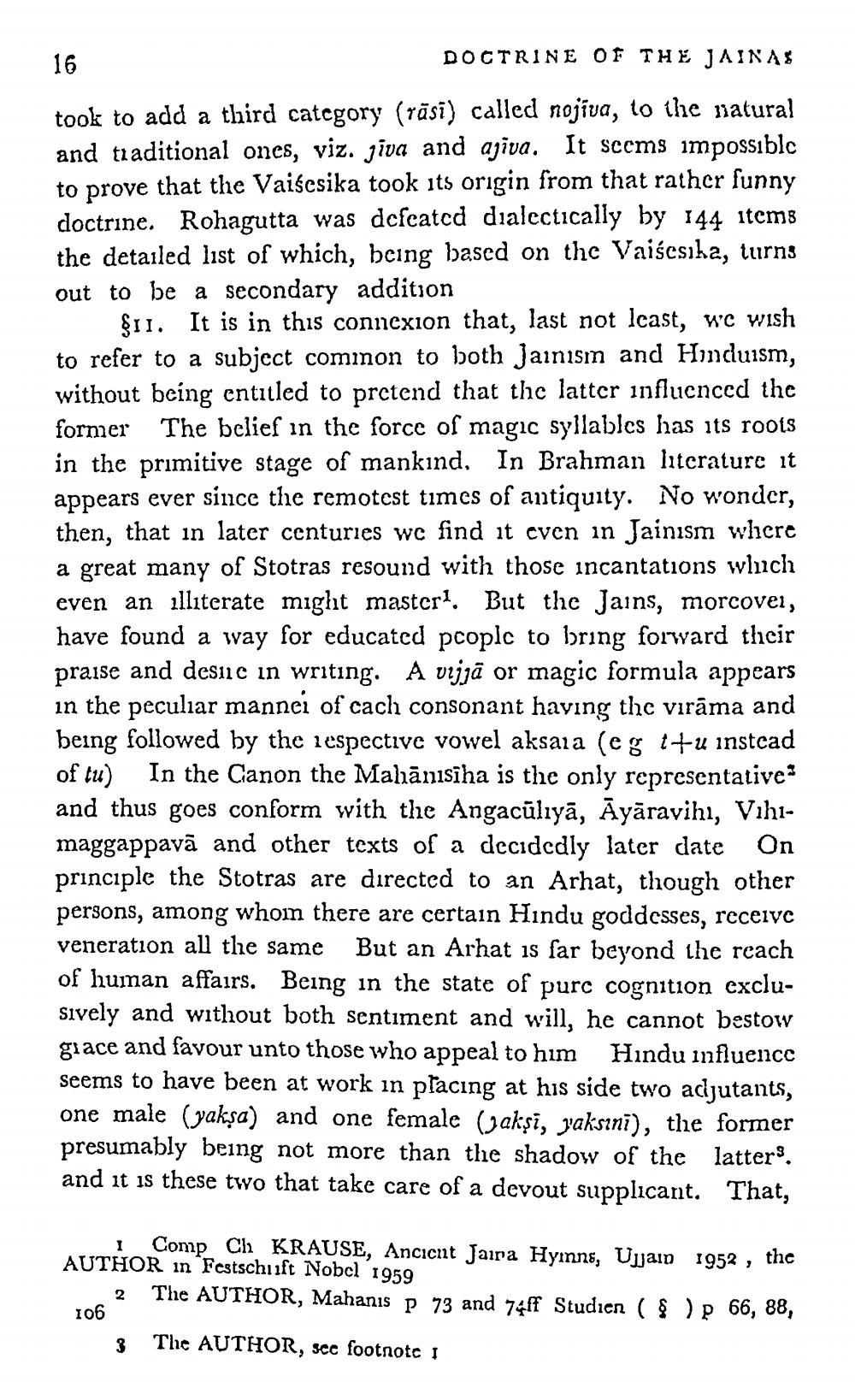________________
16
DOCTRINE OF THE JAINAS took to add a third category (rāsi) called nojiva, to the natural and traditional ones, viz. piva and ajiva. It seems impossible to prove that the Vaiścsika took its origin from that rather funny doctrine. Rohagutta was dcfcatcd dialectically by 144 items the detailed list of which, being based on the Vaiścsiha, turns out to be a secondary addition
$11. It is in this connexion that, last not lcast, wc wish to refer to a subject cominon to both Jainism and Hinduism, without being cntitled to pretend that the latter influenced the former The belief in the force of magic syllablcs has its roots in the primitive stage of mankind. In Brahman literature it appears ever since the remotest times of antiquity. No wonder, then, that in later centuries we find it even in Jainism where a great many of Stotras resound with those incantations wluch even an illiterate might master. But the Jains, morcovei, have found a way for educated pcoplc to bring forward their praise and desiic in writing. A vijjā or magic formula appears in the peculiar mannei of cach consonant having the virāma and being followed by the respective vowel aksara (eg itu instead of tu) In the Canon the Mahānisiha is the only representative? and thus goes conform with the Angacūlıyā, Āyāravihi, Vihimaggappavā and other texts of a decidedly later date On principle the Stotras are directed to an Arhat, though other persons, among whom there are certain Hindu goddesses, receive veneration all the same But an Arhat is far beyond the reach of human affairs. Being in the state of purc cognition exclusively and without both sentiment and will, he cannot bestow giace and favour unto those who appeal to him Hindu influence seems to have been at work in placing at his side two adjutants, one male (yakşa) and one female (akşi, yaksini), the former presumably being not more than the shadow of the latter. and it is these two that take care of a devout supplicant. That,
1 Comp Ch KRAUSE, Ancient Jaira Hymns, Ujjain 1952 , the AUTHOR in Festschrift Nobel 1959
2 The AUTHOR, Mahanıs P 73 and 74ff Studien ( ) 66, 88,
106
3
The AUTHOR, scc footnote :




